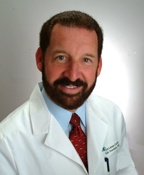

Eat Right and See Clearly

Have you ever heard the expression-"Your eyes are bigger than your stomach"? That old adage may probably be true, but not for the reasons most people may think. Your eyes are more important than your stomach. It is however, what you eat that can significantly affect how you see.
Americans are starving in the midst of plenty. We are eating the wrong things and are rapidly becoming the most obese population on earth. Over the past twenty years the proportion of individuals who are considered 20% over their ideal body weight has increased by 33%. Diabetes, a disease of circulation caused by too little insulin and too much sugar, is reaching epidemic proportions for the first time in history. This is occurring not necessarily because we eat too much, but rather because of what we eat. Americans are spending billions of dollars on diet schemes yet we are getting fatter and we are becoming less healthy. Diets simply haven't worked in improving the waistlines or the health of Americans. Calorie restriction and cutting the amount of food we eat may result in weight loss, but the effect doesn't last. We gain it all back and then some in most instances. Restriction of fat intake doesn't work either. Without a steady diet of "good" fats we become nutritionally deprived which is detrimental to both our health and our eyes. Eating a carbohydrate based diet (with refined sugars that appear as sucrose, dextrose, glucose, fructose, and maltodextrin, in most everything we eat from crackers, pasta, and salad dressings to peanut butter and soft drinks) leads to obesity and increases our risk of diabetes. Sugar in our diets is killing Americans more than war, terrorism and accidents. We as a nation need to make the excessive consumption of sugar a national priority.
What should we eat? A well balanced diet of lean meats, vegetables, and minimal carbohydrates will make us leaner and healthier.
What does diet have to do with our eyes? Believe it or not, just about everything. In an overfed, affluent society like ours, of the three most common causes of blindness, namely, cataracts, macular degeneration and diabetes, diet may play a central role in each one. When your mother told you to "eat your carrots, they are good for your eyes," she probably was right. We know that Macular Degeneration (AMD), a common disorder of the retina (macula) that can reduce the quality of vision as people age, can be helped with nutrition. For over twenty years, I have been instructing my patients to wear protective sunglasses when outdoors to avoid the damaging exposure that sunlight may cause, and to take a daily supplement of the antioxidant vitamins and zinc. Recently, the results from the age-related eye disease study, demonstrated that supplements containing high levels of Vitamin C, Beta-Carotene, and Zinc reduce visual loss for people at risk for AMD. A recent Harvard study published in Investigative Ophthalmology and Visual Science in November 2002, demonstrated that the carotenoids, mainly zeaxanthin and lutein, found in green leafy vegetables, play an essential role in protecting the retina from light damage. Cigarette smoking is also a well-established risk factor for the development of this disorder and if you smoke, you should quit. We have also learned that dietary fat intake, particularly the fat found in highly processed snack foods, such as monounsaturated and "polyunsaturated" vegetable fats may increase your risk of developing AMD. Family history plays a role; if you have a member of your family with the disease, you are also at increased risk.
Cataracts are more common in diabetics (where high dietary and blood sugar leads to swelling and clouding of the natural lens). Diabetics also have a greater incidence of glaucoma (high eye pressure that leads to optic nerve damage) and retinopathy (leakage of blood and serum through the vessels in the back of the eye). You don't have to be a diabetic to suffer the damage that high blood sugar can do to your eyes.
If you don't already do so, consider a daily multivitamin, increase your intake of green leafy vegetables and avoid sugar laden and processed high fat foods. Eat right and see clearly.
Robert M. Kershner, MD, FACS is an internationally recognized ophthalmic surgeon. He is a frequent contributor to health columns, has written over two hundred scientific articles, contributed to sixteen textbooks and lectures on eye microsurgical techniques to surgeons the world over. He specializes in cataract and refractive surgery at the Eye Laser Center in Tucson, Arizona. Copies of his articles and chapters of his book "Lessons from the Practice-The Gift of Sight" are available for free download from his website or call (520)797-2020 for a consultation.